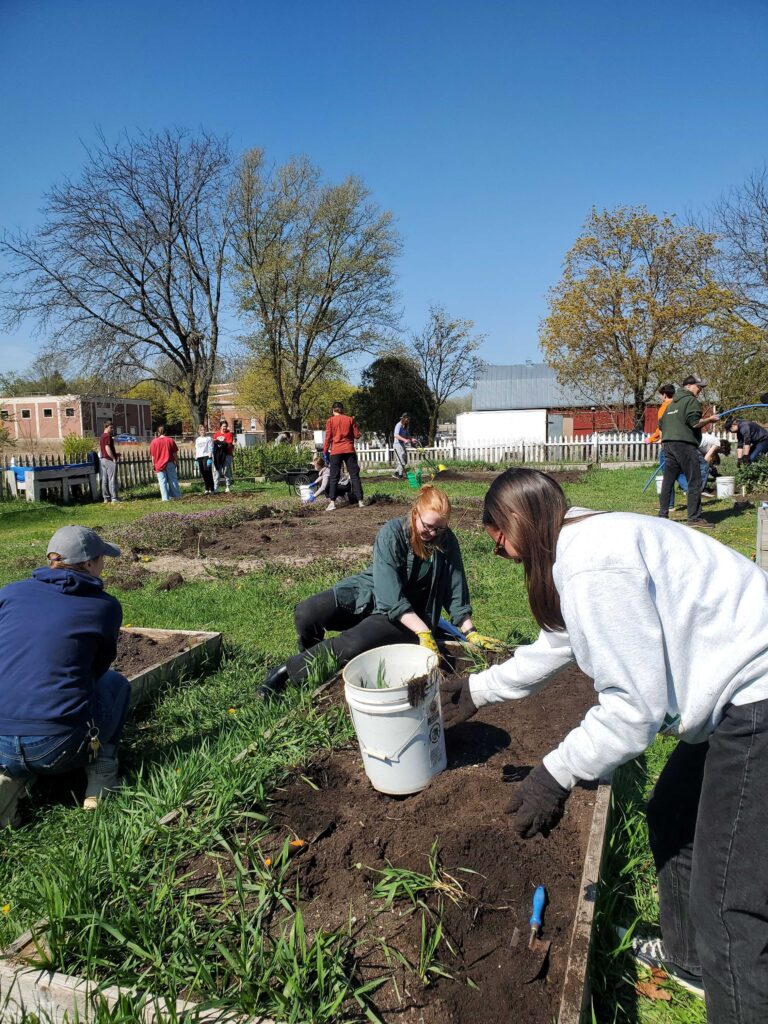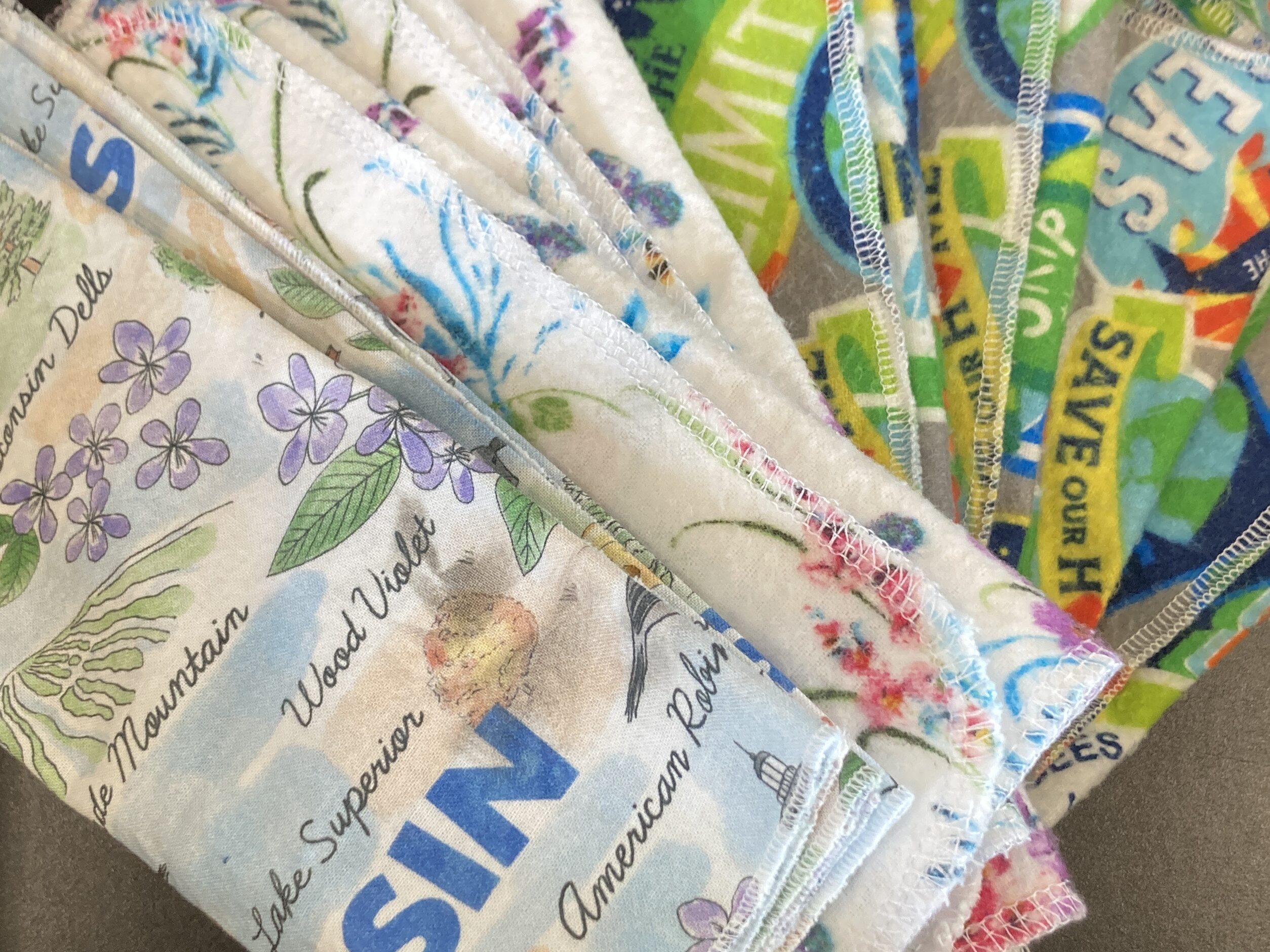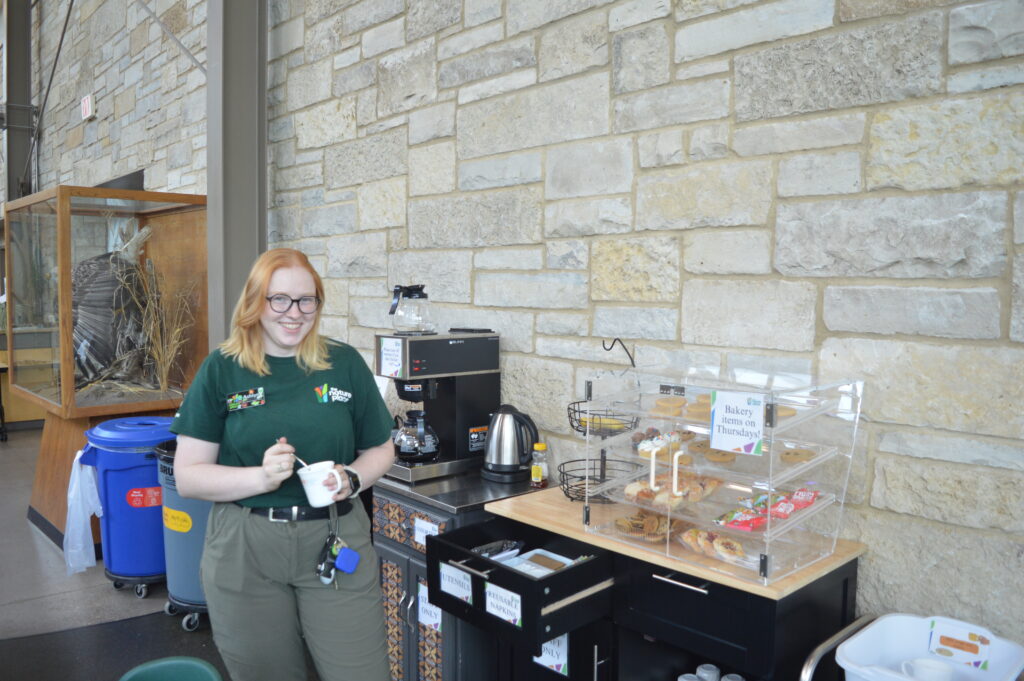Ashlyn Luckey | Visitor Services Assistant
AmeriCorps Member, September 2023 – August 2024
Sustainability has become quite the buzzword over the past few years. From news headlines to the grocery store, it seems to be plastered on everything, and it can get overwhelming! Though it may seem like a daunting journey, it’s actually easier than many people expect to make changes that lead to more sustainable living. If you’re looking for some ideas on how to do just that, you’ve clicked on the right blog post!

Ashlyn working in our demonstration garden
When it comes to sustainability, a common thread that runs throughout most conversations is the idea of reducing waste. Our culture of consumerism has created a world where, just in the United States, we create nearly 5 pounds of waste per person every single day, according to the EPA. Statistics like this may be disheartening, but every little effort truly does add up. The classic environmental motto of “Reduce, Reuse, Recycle” has been, in recent years, added onto and now sometimes includes the addition of Refuse and Repair. Refusing excess goods that are likely to go to waste is a great way to stop pollution before it even starts. Bringing your own reusable containers to restaurants for leftovers, bags to the grocery store, and using reusable water bottles and straws are just a few of the ways to replace common single-use items. Making small changes like buying secondhand or borrowing from a friend also helps to cut down on excess spending and unnecessary production: good for the wallet and the planet! Mending clothes and repairing things when possible is another great way to reduce what ends up in the landfill and can help you extend the life of your favorite items.
Plastic is probably the most well-known type of waste, and for good reason: it is one of the most wasted materials in the world. For that same reason, there is a large focus globally on cutting down on plastic waste. This month is Plastic Free July, a campaign started in 2011 in Australia to reduce plastic waste and plastic usage generally. Since then it has become one of the most successful environmental campaigns in the world and has millions of participants annually. This campaign runs on the idea that every small individual change, in turn, leads to larger, overarching changes, and focuses on the concept of refusing plastic whenever possible. If you’d like to take the Plastic Free July challenge yourself this year, you can click here to sign up.

If you’re looking to get outside and be more sustainable, another way to cut down on household waste is composting. Though it may not work for everyone, starting a compost pile in your backyard, taking your compost to a community drop-off location like Isle La Plume, or having it picked up curbside are all options for those living in the city of La Crosse. Gardening is also a great way to practice sustainability while actually getting outside! If you have a place to garden, growing your own food reduces packaging waste from store-bought produce as well as avoiding energy usage and carbon emissions from the transportation of produce to stores. Planting native plants is another great option; native plants tend to require much less water due to their impressive root systems and actually grow best without fertilizers. They also promote biodiversity and healthy natural systems, which benefits us humans as well as wildlife.

Here at The Nature Place, just as we encourage you to do, we do our best to reduce waste and function sustainably. One of the ways we do this is through the coffee bar in our Atrium. We offer free coffee and tea during our open hours as well as bakery treats on Thursdays, and use ceramic mugs and plates as well as real silverware and reusable cloth napkins. This allows us to simply wash the dishes and napkins when they are dirty and put them back out to be used again once clean, instead of using disposables that will be tossed after only one use. Being sustainable looks different for everyone, but if each person does what they can, it ends up resulting in real change.

